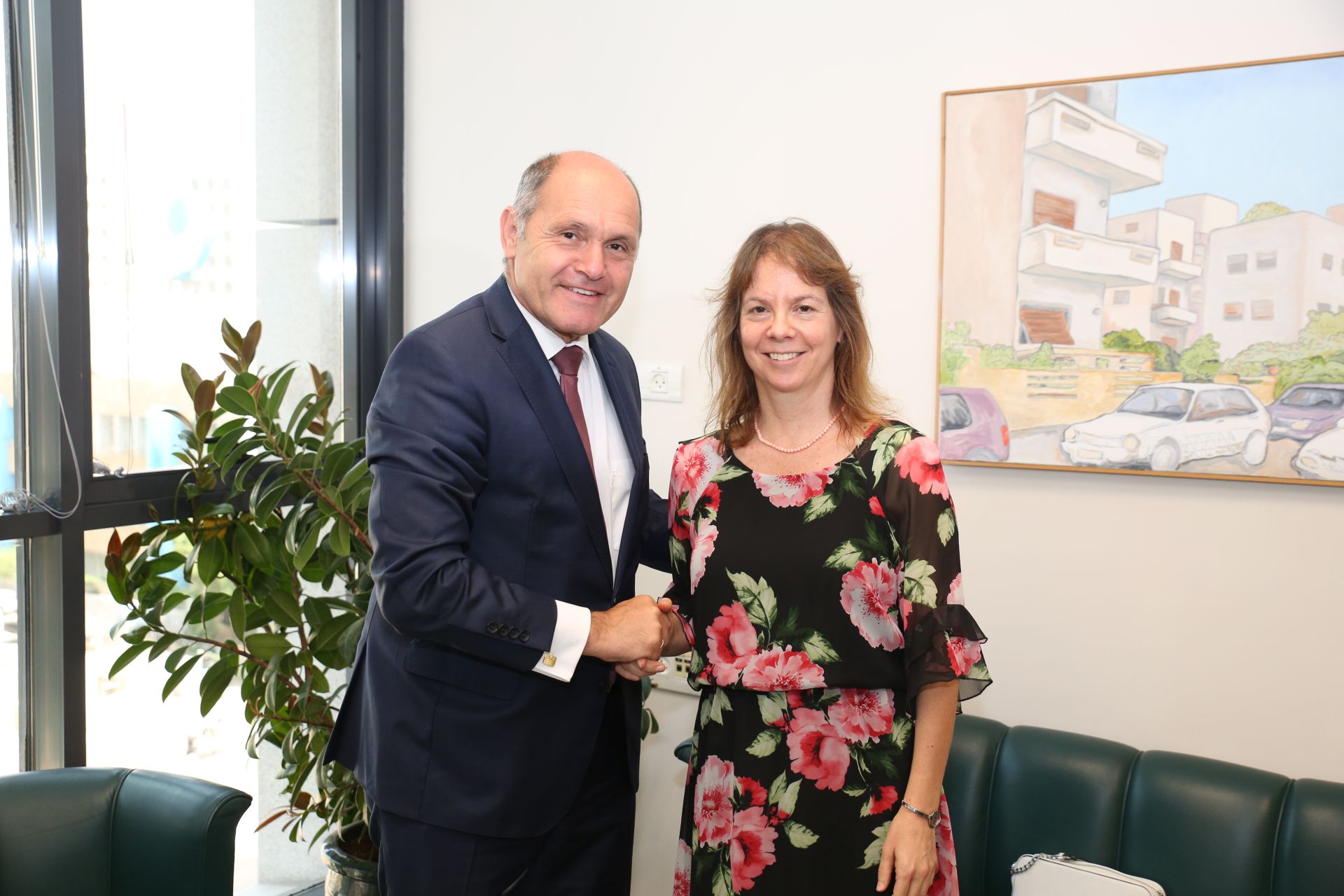The Prize
In view of the darkest chapter of its history, Austria has a special historical responsibility. Part of this is fighting antisemitism, which has taken on many faces today and not only emerges from the "fringes" but is also perceptible in the centre of society. The level of attention and sensitivity we dedicate to identifying antisemitic tendencies must not diminish, and our efforts towards fighting antisemitism must not wane. This is precisely where the idea of conferring the Simon Wiesenthal Prize comes in – recognising individuals who have shown special civic engagement to combat antisemitism and/or promote Holocaust education.
The Simon Wiesenthal Prize is endowed with 30,000 euros annually, of which 15,000 euros are allocated to the main award and 7,500 euros each to the other two awards. The Simon Wiesenthal Prize may be awarded to up to three individuals or groups. School projects and institutionalised entities, such as associations, may also receive the prize.
The National Fund of the Republic of Austria for Victims of National Socialism, established at the Austrian Parliament, is responsible for administrative matters relating to the award. The Board of Trustees, headed by the President of the Austrian National Council, will decide on the basis of a shortlist compiled by a six-member jury. The Simon Wiesenthal Prize jury comprises the President of the Jewish Religious Community in Austria, recognised figures from public and cultural life in Austria and abroad, individuals with an academic reputation in the field of contemporary history or in another relevant academic discipline and representatives of Simon Wiesenthal's family. The jury members are to be appointed for the duration of one legislative period.
Why the award was created
Simon Wiesenthal (1908–2005) had an unparalleled impact around the globe on dealing with Nazi crimes. From the day of his liberation from Mauthausen concentration camp, he made it his life's work to foster remembrance of the victims of Nazi terror. The means he used towards this end was the rule of law, and the method he applied was to track down Nazi criminals and bring them to justice. Wiesenthal was an unshakeable admonisher of antisemitism and fought against it at a time when the crimes of the Nazi regime were frequently being suppressed. His unwavering efforts earned him much international recognition. In post-war Austria, however, he was met with political resistance and the rejection of his endeavours to uncover Nazi crimes and to have those responsible prosecuted.

Today, taking a clear stance and standing up against antisemitism are more important than ever. The idea of establishing an award for outstanding civic engagement to combat antisemitism and/or promote Holocaust education was developed in 2018 in the context of a trip to Israel, when the President of the Austrian National Council, Wolfgang Sobotka, met Simon Wiesenthal’s granddaughter Rachel Kreisberg. In subsequent discussions, the idea of the award evolved and became increasingly concrete. The proposal to name this award after Simon Wiesenthal, who dedicated his life to raising awareness and promoting education about the Holocaust, evolved in November 2018 with the support of the Wiesenthal family: "Especially today, when racism and antisemitism are on the rise, at a time when the Holocaust is increasingly being denied, Austria's decision to establish a Simon Wiesenthal Award is of great importance," said Paulinka Kreisberg, daughter of Simon Wiesenthal, stating that conferring such an award was entirely in the spirit of her father, who had always fought against antisemitism and for remembrance of the victims of the Holocaust. His daughter also highlighted that Simon Wiesenthal would have considered it a great honour to be the namesake of this award.
On 17 June 2020, the relevant bill was introduced in Parliament by the ÖVP (Austrian People’s Party), the SPÖ (Austrian Social Democratic Party), the Greens and the NEOS (New Austria and Liberal Forum) and adopted by the National Council on 7 July 2020, laying the foundation for the Simon Wiesenthal Prize.
By means of an amendment to the National Fund Law (Federal Law Gazette I no. 94/2020) the National Fund of the Republic of Austria was mandated to confer the Simon Wiesenthal Prize.
